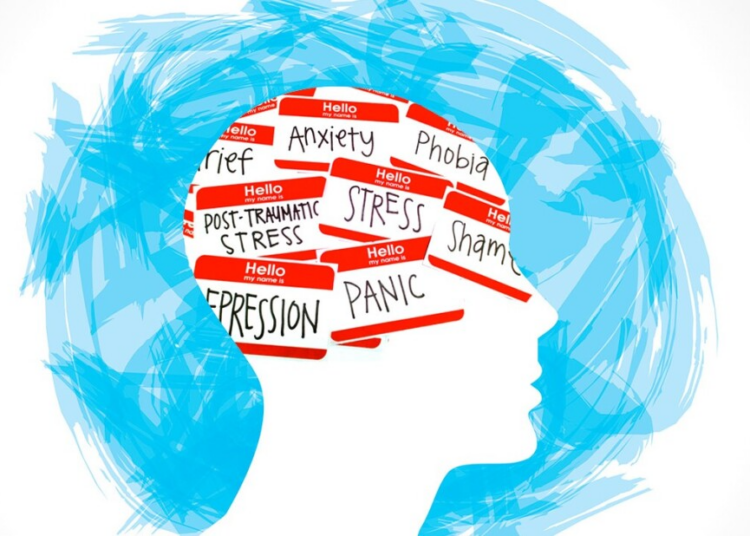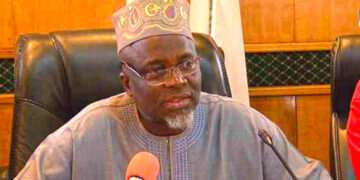As mental ill-health becomes more prevalent, stakeholders have called for the promotion of mental health as an essential human right.
A public health expert and founder of Deevoice Foundation for hope, Diana Eyo Enoette, said mental health is an intrinsic aspect of human wellbeing, deserving the same attention, care, and respect as physical health.
She said “We believe in a society that nurtures mental health, embracing diversity, fostering understanding, and providing equitable opportunities for all. By standing united, we strive to create a world where mental health is not only recognized as a human right but is also fully integrated into healthcare systems, workplaces, schools, and communities.
Also. the executive secretary, National Human Rights Commission. Tony Ojukwu, has called on the government to give effect to the National Mental Health Act (2023) in other to enhance realisation of Mental Health Rights in the country.
Ojukwu, who spoke at a press briefing in commemoration of the the 2023 World Mental Health Day, theme: “Mental Health is a Universal Human Right’, recently in Abuja, also called for humane treatment of persons with mental health conditions, psycho-social or cognitive disabilities as they also ought to be beneficiaries of right to dignity of the human person.
Represented by the deputy director, investigation (monitoring), Iheme Richmond, the executive secretary said the Mental Health Act reaffirms mental health as a human right. “This is symbolic having been eloquently re-echoed in the theme for 2023 World Mental Health Day.
“Having passed the Mental Health Bill into law and subsequent Presidential assent, what next? How have the spirit and letters of the legislation been operationalized ? How available is mental health care in the country? How accessible are they? Are they affordable? It needs to be underscored that availability, accessibility and affordability are central to government obligation in relation to all economic, social and cultural rights.
“The National Human Rights Commission therefore urges government to take further progressive steps to give effect to the legislation in order to enhance mental health in Nigeria.”
He further called on the government to urgently scale up measures to address economic and social conditions that affect mental well being of persons in the country.
In his remarks, the public health emergencies advisor, World Health Organization (WHO), Alexander Chimbaru, said mental health is a basic human right for all as everyone, everywhere has the right to the highest attainable standard of mental health.
He said everyone should have the right to live a life with dignity, equity, equality, and respect, and this includes people with mental health conditions.
However, he noted that due to several individual, environmental, socio-economic and demographic changes, the prevalence of mental health has been on the increase worldwide with depression and anxiety being the most common conditions.
“Suicide is the second leading cause of death among 15-29 years old with low-and middle-income countries bearing the brunt of these deaths. One in five people living in post-conflict settings have a mental health condition In addition, stigma, discrimination and human rights violation of people with mental health conditions continue to persist,” he said.
Meanwhile, the coordinating minister of Health, Prof. Mohammed Ali Pate, noted that health is complete state of physical, social and mental wellbeing, adding that mental health is an integral part.
“The fact that we are celebrating this day signals that we still have a lot of work to do to bring that aspect of our understanding into what really health is. We have a hidden epidemic of mental diseases., globally 15 percent of the burden of diseases in our country is a significant cause of morbidity and some mortality due to mental ill-health.
“It is a bi-directional relationship. Physical diseases can contribute to mental health illnesses and mental health illnesses can contribute to physical diseases, much of what we see in diabetes, hypertension, heart diseases can be contributed to by stress, anxiety, depression and they can also lead to the other issues but we have chosen to focus mostly on the physical manifestation of infectious diseases. This is a hidden epidemic and we do not see it enough,” said Pate.
The minister, therefore, said that the access, affordability and quality of mental health care will be an important direction to be taken in the context of the country’s strategic blueprint for health.
“We would include access, affordability and quality, not only for the physical but also for mental health.
“The law that has been passed, we will develop the guidelines to operationalise it. We need resources and I think the federal government will pull from the resources available and we call on states to prioritise health, put the resources in, as non-state actors are also stepping in. the private sector has an important role to play because mental health undermines productivity in the workplace.
“The productivity of your workforce can be undermined by poor mental health in addition to physical mental health. So we call on the private sector to look at the circumstances of their workforce and do things to make it easier for those who are ill to get the care, enablement that they need and the support that they need, he said.
The minister of state for Health, Dr. Tunji Alausa, revealed that the ministry was working on incorporating mental care into Primary Healthcare Centres (PHC).
He said “We already have counselling units incorporated into our PHCs and we will work on reactivating that and expanding beyond counselling mental health into our PHC centres so that they can have full continuum into provision of healthcare to our citizens.”





